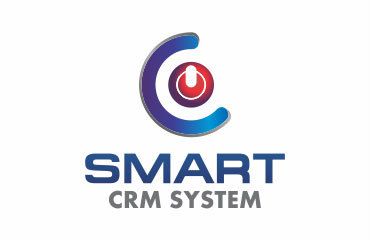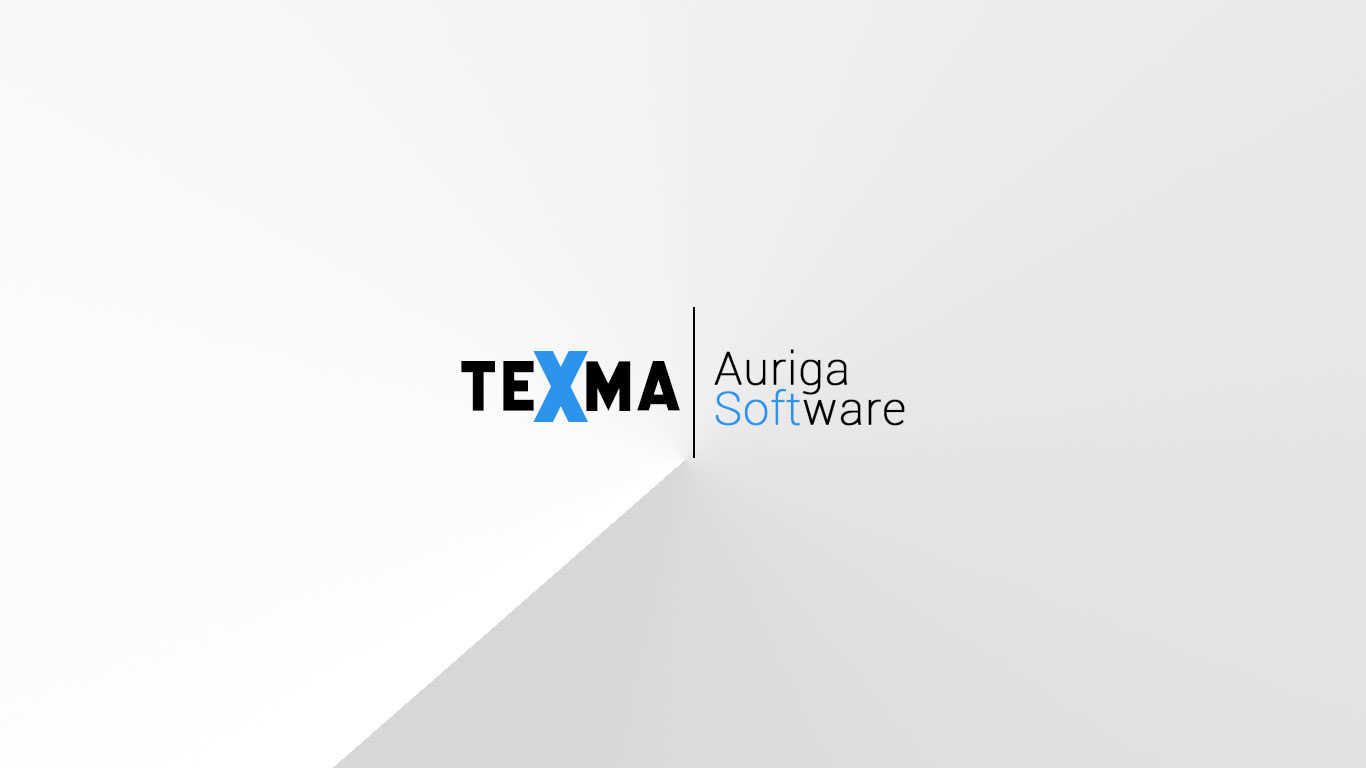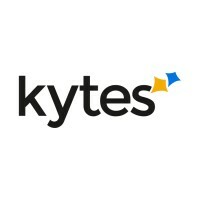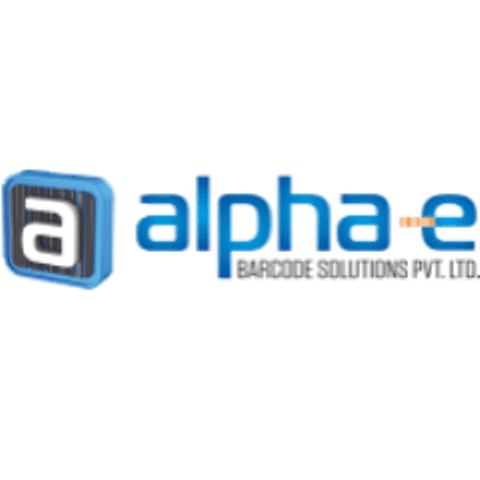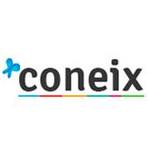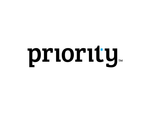What Is ERP Software?
Enterprise Resource Planning (ERP) software is a strong tool for integrating and managing critical business activities throughout an organization. It offers a consolidated platform for data management, workflow automation, and operational efficiencies, making it a must-have solution for enterprises of all sizes. ERP software streamlines and optimizes corporate processes by offering a unified system that connects diverse departments such as finance, human resources, supply chain, and manufacturing.
ERP enables firms to reduce data silos and wasteful processes, resulting in greater collaboration and efficiency. One of the primary advantages of ERP software is its ability to give real-time insights and analytics. With all data in one place, organizations can make informed decisions and find areas for improvement.
This data-driven strategy enables improved forecasting, planning, and resource allocation. Furthermore, ERP software is highly adaptable, allowing organizations to tailor the solution to meet their individual requirements. This implies that organizations can select the modules and features that best match their objectives and operations. Furthermore, as the firm develops and evolves, ERP software can scale to meet changing needs and expectations.
Another benefit of ERP software is its capacity to automate mundane and repetitive operations, allowing personnel to focus on more important duties. This not only minimizes the possibility of human error, but it also results in increased efficiency and cost savings.
Furthermore, with the rise of cloud computing, many ERP software packages also support cloud-based deployments. This implies that firms may access ERP software from any place or device, making remote operations more manageable and flexible.
What Are The Recent Trends In ERP Software?
ERP (Enterprise Resource Planning) software has evolved fast in recent years, driven by technological breakthroughs and shifting business requirements. As a buyer, it is critical to stay current on the newest ERP software developments in order to make an informed selection and select a system that matches your organization's specific needs. In this buyer's guide, we'll go over the major trends in ERP software and how they can help your company.
1. Cloud-Based ERP: One of the most significant changes in ERP software is the migration to cloud-based systems. Cloud ERP has several advantages, including lower initial costs, scalability, and accessible from anywhere, making it an appealing option for organizations of all sizes. With the advent of remote work and virtual teams, cloud ERP has become increasingly important for organizations to stay connected and manage their operations effectively.
2. AI & Machine: Learning Artificial intelligence (AI) and machine learning (ML) are changing the capabilities of ERP software. These technologies can assist businesses automate regular operations, increase data accuracy, and provide useful decision-making insights. For example, AI-powered ERP may evaluate data and patterns to forecast future trends, allowing businesses to make proactive, data-driven decisions.
3. Mobile Compatibility: With the growing use of mobile devices, ERP software suppliers are concentrating on making their systems mobile-friendly. Employees may now use the ERP system on the road, increasing their productivity and efficiency. Mobile compatibility also allows remote workers to stay connected and participate in real time, which improves overall team performance.
4. Integration With Other Systems: As firms implement more digital solutions, seamless connectivity between systems becomes increasingly important. ERP software that integrates with third-party systems such as CRM, HR, and e-commerce platforms enables effective data sharing while reducing the need for manual data entry.
5. Emphasis On User Experience: User experience has become a critical factor for ERP software purchasers. User-friendly interfaces, customizable dashboards, and straightforward navigation are all critical to employee acceptance and system performance. ERP software companies are investing in improving the user experience to ensure that the system is simple to use and serves the needs of all employees, from executives to front-line workers.
Benefits Of Using ERP Software
Enterprises demand a reliable solution to successfully manage their complicated business processes. Here is where ERP software comes into play. ERP, or Enterprise Resource Planning, is a centralized program that integrates all critical business activities, including finance, supply chain, manufacturing, human resources, and others. It offers real-time visibility and a comprehensive view of the organization, enabling firms to make data-driven decisions.
Here are the main advantages of adopting ERP software for your business:
1. Increased Efficiency And Productivity: ERP software automates manual operations and simplifies processes, eliminating the need for manual entry and reducing errors. This increases production and efficiency, allowing businesses to save time and money.
2. Better Decision Making: By providing real-time data and insights into multiple company activities, ERP software enables firms to make informed decisions rapidly. This enables for more effective planning, forecasting, and, ultimately, meeting corporate objectives.
3. Centralized Data Management: One of the primary benefits of ERP software is that it offers a single, centralized database for storing and managing all business data. This removes data silos and maintains data consistency throughout all departments.
4. Cost Savings: By improving company operations and minimizing human labor, ERP software can help firms save money. It also reduces the need for various systems and software, resulting in lower maintenance and licensing expenses.
5. Scalability: ERP software is meant to adapt to a company's evolving needs as it grows. This means that firms can add or remove capabilities and modules as needed, resulting in a long-term solution to their business demands.
6. Enhanced Collaboration: ERP software encourages cross-departmental collaboration and information exchange. It removes departmental barriers and improves communication, resulting in stronger teamwork and alignment around a common purpose.
7. Improved Customer Happiness: By providing real-time information and reliable data, ERP software helps firms increase customer service and happiness. Positive word-of-mouth can result in enhanced client retention and attract new customers.
Important Factors To Consider While Purchasing ERP Software?
When it comes to choosing ERP software for your business, there are a few key considerations to consider. This software can have a considerable impact on the productivity and effectiveness of your operations, thus it is critical to select the appropriate one for your unique requirements.
Here are the essential elements to consider while making your decision:
1. Business Requirements: Before beginning your search for an ERP solution, you must first understand your company's requirements. This will assist you identify the software functionalities and features you require. Consider the size of your company, your sector, and any specific procedures that you wish to optimize or enhance.
2. Scalability: Your firm may be tiny now, but it is critical to select an ERP system that can expand with you. Ensure that the program can handle any future changes in your company, such as increased production, new locations, or new product lines.
3. Customization Options: While many ERP systems provide a variety of capabilities, not all of them may be useful or important to your firm. It is critical to select software that allows for customization so that it can be tailored to your individual requirements and operations.
4. User-Friendliness: Your staff will be utilizing the ERP software on a daily basis, thus it is critical to consider their simplicity of use. The interface should be simple to use and navigate, requiring little training.
5. Integration Capabilities: ERP software should be compatible with other systems and software used in your company, such as accounting or CRM software. This will provide a smooth data flow while avoiding human data entry, saving time and decreasing errors.
6. Cost: While cost should not be the only deciding factor, it is an essential one. Look for ERP solutions that provide good value for money and have no hidden charges, such as hefty customization fees or annual maintenance fees.
7. Vendor Reputation And Support: Look into the vendor's reputation and track record of providing ERP solutions and support to companies in your industry. Consider their customer service and availability to address any difficulties or questions that may occur.
8. Security: Because ERP software will include sensitive corporate data, you must ensure that the vendor has strong security procedures in place to secure your information. This includes backups, encryption, and disaster recovery procedures.
9. Implementation And Training: Consider the timeline and resources needed to establish the ERP system and teach employees. Choose a software vendor who offers appropriate assistance and training to ensure a successful implementation.
10. Cloud Vs. On-Premise: With the popularity of cloud-based ERP solutions, it is critical to grasp the benefits and drawbacks of both cloud and on-premise options. Before making a decision, consider cost, data security, and accessibility.
What Are The Key Features To Look For In ERP Software?
When selecting ERP software for your company, search for vital features that will address your specific requirements and streamline your operations. These elements are critical to guaranteeing the success and efficiency of your ERP system.
Here are the main things to look for in ERP software:
1. Customizable Modules: The ERP system should include customizable modules that may be tailored to your specific business processes and workflows. This will ensure that the program is an ideal fit for your organization's specific needs.
2. Scalability: Your ERP system should be able to expand alongside your firm as it expands. It should be able to handle a huge volume of data, users, and transactions while maintaining peak speed.
3. Integration Capabilities: The ERP system should work easily with your existing systems, including accounting, CRM, and inventory management. This ensures continuous data flow and eliminates the need for human data entry, lowering the chance of errors.
4. Real-Time Analytics: Choose an ERP system that offers real-time data and analytics. This enables you to make informed decisions quickly and stay ahead of the competition.
5. Mobile Access: In today's fast-paced corporate climate, you must be able to access your ERP system while on the road. Look for software that is mobile-compatible, so you can manage your business from anywhere, at any time.
6. User-Friendly Interface: The software's interface should be simple to use and understand. This reduces the learning curve for your personnel and eliminates the need for intensive training.
7. Cloud-Based: Cloud-based ERP systems provide numerous advantages, including increased accessibility, lower prices, and automatic updates. Consider a cloud-based solution to help your organization remain flexible and competitive.
8. Security: Because your ERP system will store sensitive and secret data, it is critical to select software that includes strong security measures to protect your information.
9. Customer Support: Look for an ERP company that provides dependable and timely customer service. This will guarantee that any issues are addressed quickly, reducing downtime and increasing efficiency.
10. Industry-Specific Features: Some ERP systems are developed for specific industries, such as manufacturing or healthcare. Consider software with industry-specific functionality to better match your requirements. By taking these critical qualities into account, you can make an informed decision about which ERP system would best meet your business needs and help you achieve your objectives. Remember that every business is unique, so carefully consider your alternatives and select the best software for your corporation.
Why Do Businesses Need ERP Software?
Businesses use ERP software because it streamlines procedures, enhances efficiency, and boosts overall productivity. ERP (Enterprise Resource Planning) software is a centralized system that integrates multiple corporate operations, including accounting, inventory management, and human resources. It provides a comprehensive perspective of the company's activities, enabling organizations to make data-driven decisions and remain competitive in the marketplace.
One of the primary advantages of ERP software is that it eliminates the need for numerous separate systems and human data entry. This saves time and lowers errors while also lowering operational costs. Businesses can easily access real-time data, track performance, and find areas for development because all of their information is housed in one location.
Another benefit of adopting ERP software is the ability to automate operations and workflows. This assists firms in streamlining their operations, improving cooperation between divisions, and reducing the likelihood of bottlenecks or delays. For example, an ERP system may automate the entire procurement process, from issuing a purchase order to receiving and paying bills, making it more efficient and error-free.
ERP software provides extensive reporting and analytics features. Businesses may create personalized reports and gain insight into their operations, making it easier to spot patterns, trends, and opportunities. This information can help firms improve their processes, decrease waste, and increase profitability. Furthermore, with the advent of remote labor and multinational supply chains, organizations want ERP software to stay connected and in control of their operations.
ERP systems may be accessed from any location with an internet connection, allowing employees to work remotely, communicate, and view real-time data. This is especially important for businesses with many locations or that operate worldwide.
How Much Time Is Required To Implement ERP Software?
The adoption of ERP software varies widely based on various aspects, including the size and complexity of your business, the ERP system used, and your organization's readiness for change. A full-scale ERP implementation can take anywhere from six months to two years, with smaller organizations often taking less time than larger corporations.
The first step in deploying ERP software is to thoroughly evaluate your company's requirements and goals. This includes identifying your core business operations and determining how the ERP system will integrate and streamline them. It is critical to consult all departments and stakeholders at this stage to ensure a thorough grasp of your company's operations and how the new software will effect them.
Next, you'll need to customize and configure the ERP system to meet your specific business requirements. This may take many weeks or months, depending on the complexity of your business operations and the extent of customization necessary. Once the system is set up, it is critical to train your personnel on how to utilize the new software successfully.
This training procedure can take weeks or months, depending on the number of employees and their familiarity with technology. The final phase in implementation is to test and fine-tune the system to ensure that it is functional and meets your company's requirements. This can take several weeks, and it is critical to work out any bugs before deploying the system.
Overall, the adoption of ERP software involves careful planning, customization, training, and testing, which can take anywhere from six to two years. To achieve a successful and effective installation, you should collaborate closely with your chosen software vendor and include all stakeholders in the process.
What Is The Level Of Customization Available In ERP Software?
When it comes to enterprise resource planning (ERP) software, personalization is critical to consider. ERP software offers organizations a complete solution for managing their day-to-day operations, including finances, inventory, human resources, and more. However, each firm is unique, and their requirements may differ depending on industry, size, and operations. Here's where customisation comes into play.
The level of customisation offered in ERP software varies between software and vendor. ERP software provides varying levels of customisation, ranging from basic to highly personalized solutions. The level of customization offered is also determined by the business's budget and resources. Basic customization allows users to make minor modifications to the software, such as adding or removing fields, changing color schemes, and inserting company logos.
This level of customization is appropriate for small organizations and those with uncomplicated operations. On the other side, more advanced customisation capabilities enable firms to change workflows, introduce new modules, and interact with other software systems. This level of customization is perfect for enterprises with complex requirements. Many ERP software suppliers supply pre-made modules or templates that can be adapted to meet the specific demands of the organization.
This can save time and costs as compared to developing a customized solution from scratch. Furthermore, some ERP software includes a set of add-ons or plug-ins that may be used to extend the system's capability and tailor it to the needs of the organization. Businesses must thoroughly examine their needs and procedures before selecting an ERP software with the appropriate level of customization.
It is also critical to assess the software's long-term scalability and adaptability to changing business requirements. While fully customized ERP software may provide the best suited solution, it can also be more expensive and resource intensive to maintain.
Which Industries Can Benefit The most From ERP Software?
ERP (Enterprise Resource Planning) software is a robust and comprehensive business management system that combines finance, human resources, inventory management, and customer relationship management on a single platform. While ERP software can assist organizations of all sizes, some industries stand to benefit the most from its implementation.
Let's take a closer look at some of the industries that stand to profit most from ERP software.
1. Manufacturing: The manufacturing business is extremely complicated, with multiple operations such as procurement, production planning, inventory management, and supply chain management. ERP software automates these procedures, giving manufacturers real-time visibility into their operations, allowing them to make more informed decisions, streamline production, and increase overall efficiency.
2. Retail: Retail organizations must manage a vast number of items, suppliers, and consumers on a daily basis. ERP software allows merchants to automate functions like inventory management, order processing, and accounting, resulting in more accurate and efficient operations. ERP also provides real-time data, allowing merchants to make quick decisions and stay ahead of the ever-changing retail industry.
3. Healthcare: The healthcare industry is heavily regulated, and accurate management of patient data, equipment, and inventory is critical. ERP software helps healthcare facilities optimize administrative processes, improve patient care, and increase profitability by automating tasks and offering a centralized platform for controlling all areas of their operations.
4. Financial Services: The financial services business handles a significant volume of data and requires high levels of accuracy and compliance. Financial institutions can use ERP software to automate and optimize their back-office activities, provide faster and more accurate reporting, improve data security, and improve overall financial management.
5. Construction: The construction business is recognized for its complicated and ever-changing projects, making it difficult to manage costs, deadlines, and resources. Construction organizations can use ERP software to track project progress, control expenses, and keep ahead of potential risks, resulting in better project management and more profitability.
6. Education: Educational institutions, ranging from small schools to huge universities, must manage massive amounts of data, including student records and financial information. ERP software can assist these organizations streamline their processes, increase student services, and improve financial management by offering a consolidated platform for all of their data.
Conclusion
Finally, investing in the correct ERP software can significantly improve your company's operations and productivity. Before making a decision, you should thoroughly consider your organization's needs and priorities. Consider the most important features and functions for your organization, as well as the software's scalability and integration capabilities.
Look for a credible vendor who provides consistent customer support and training to ensure a seamless implementation and long-term success. Furthermore, keep in mind that the expense of ERP software extends beyond its initial purchase price. When considering various solutions, keep maintenance, upgrade, and license fees in mind.
Finally, involve your staff in the decision-making process and solicit their feedback to ensure that the software selected matches their needs and expectations. With rigorous study and careful review, you may choose the ideal ERP software to drive your company's growth and success.


